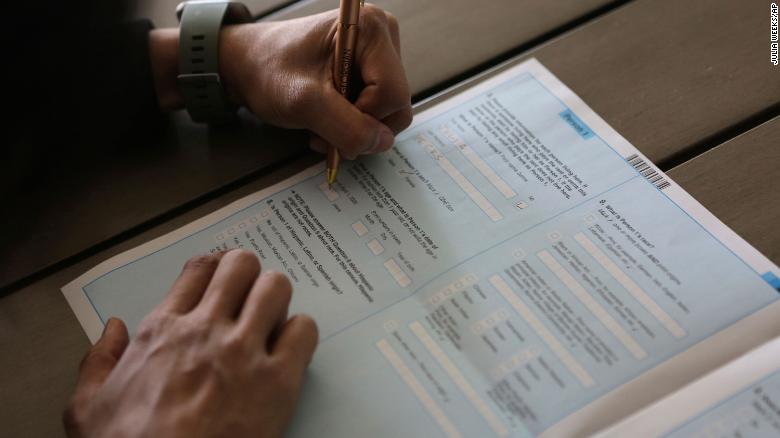The Trump administration argued on Friday against a challenge to its 2020 census plans by saying the Constitution requires a count but does not say it must be accurate.
“It cannot be the case that accuracy in and of itself establishes some sort of — is established in the enumeration clause” of the Constitution, Justice Department attorney Alexander Sverdlov told a federal judge in California.
He claimed the National Urban League and other groups challenging the administration’s plan to end the counting of the entire US population in September, rather than October, are inventing a new reading of the Constitution.
Their argument, he said, is that the “enumeration clause contains a heretofore unknown standard of accuracy that cannot really be measured by courts.”
Sverdlov acknowledged the Census Bureau has set its own “internal metrics and standards but that doesn’t mean that they’re judicially enforceable.”
The lawsuit from the groups and several municipal governments argues that Commerce Secretary Wilbur Ross acted unreasonably when he announced on August 3 that counting would end on September 30. In April, the Census Bureau announced that it was rescheduling operations due to the coronavirus pandemic, and would conduct the decennial count through October 31.
Census officials warned Ross that the new cutoff would risk “serious errors,” internal documents show.
Ross stated that the September 30 cutoff was necessary so that the Census Bureau could crunch the data. Federal law says the numbers used to divide up seats in Congress among the states are due by December 31.
Sverdlov said the Census Bureau has not missed that deadline in decades. In another court appearance this week, Justice Department attorney Brad Rosenberg said missing the deadline is uncharted territory and suggested it would be grounds for Congress to reject the numbers.
Melissa Sherry, the attorney arguing for the groups, rejected Sverdlov’s characterization of her arguments and said the government is taking “an extreme position on everything.”
“We are not asking for perfect accuracy,” she said. “I think if you take their position seriously, they would say that the Census Bureau can just decide that you know what, we’re going to have one enumerator for one week walk across the country. However many people he can count … that’s going to be our census.”
Sherry pointed to the career official overseeing the 2020 census, who said in July that the government did not have enough time to meet the December deadline. “We are past the window of being able get those counts by those dates at this point,” said associate census director Al Fontenot.
Fontenot said in court documents filed recently that in late July, Ross had instructed Census Bureau officials to present within days a plan to conclude the census by the September date.
“We’re saying the Census Bureau can’t adopt a plan that undermines the purpose of accuracy, that undermines that in the bureau’s own words, that of their own officials, that they can’t do what they’re now trying to do and achieve an accurate enough count,” Sherry said.
The government faces a Friday night deadline to submit to the court as many as 15,000 pages of internal records explaining how the census timeline changed. Judge Lucy Koh said she has assembled a panel of magistrate judges to review any challenges over whether specific pages should not be released publicly.
“Please be reasonable,” Koh told both sides.
It’s a tight timeline to review a hefty stack of records: The documents are essentially evidence that will be considered at oral arguments on Tuesday.
On Thursday, Koh extended into next week a temporary order blocking the administration from concluding counting while the arguments play out.
>>>>


